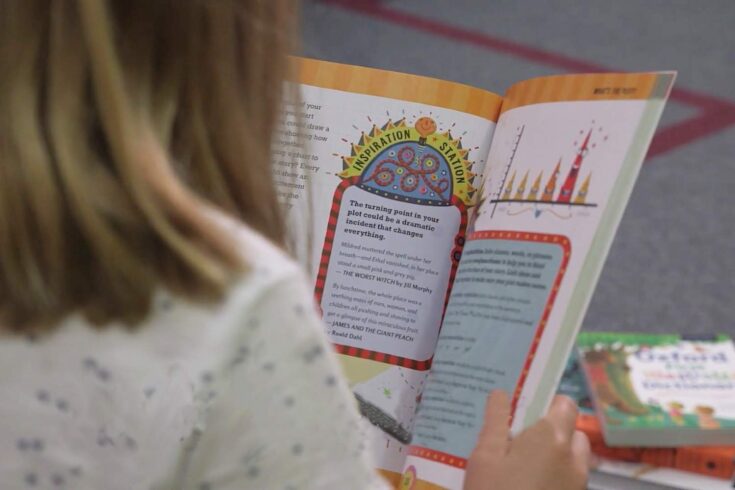In some low-income countries more than half of children leave school with poor reading skills. Even in high-income countries 15 to 20% of school leavers struggle to read well.
Speaking comes naturally to the vast majority of children, but reading does not. Children must be taught how to read, and debate has raged for decades over how best to teach reading.
Video credit: ESRC.
On-screen captions and an autogenerated transcript are available on YouTube.
About the project
Research by Professors Kathy Rastle, Kate Nation and Anne Castles has unpicked the science and cognitive processes behind skilled reading and turned that knowledge into concrete recommendations for use by teachers worldwide. Their synthesis of evidence from more than 300 research studies was published two years ago in a highly influential article, Ending the Reading Wars.
Based on scientific evidence gathered over 15 years, the research team proposes a balanced approach to reading instruction, underpinned by a deep understanding of how reading develops.
“By balanced we don’t just mean a bit of every approach thrown together,” Professor Rastle points out. Rather, research indicates that reading requires three sets of skills:
- learning how to crack the alphabetic code
- becoming fluent at recognising words
- understanding written text.
To crack the alphabetic code, children need instruction in the link between letters and sounds (phonics). This provides the necessary foundation on which to build the other vital skills of fluent word reading and text comprehension. Mastery of all three skills enables a child to read well.
“Our Ending the Reading Wars article is important because it has influenced people across the entire literacy ecosystem,” Professor Rastle explains. “A change this fundamental in the way reading education is delivered – and which potentially affects every child in the world – requires everyone involved to be talking about the science of reading and how it can be used to improve outcomes for children.”
“Today, educational leadership organisations, publishers, policymakers, teachers and parents are talking about the science of reading, and using it to transform literacy policy and practice around the world.”
Impacts of the project
Research drawing together 30 years of scientific study has resulted in concrete recommendations for how to teach reading. This research has countered ideology-based positions on how children learn to read, and is transforming policy and practice among key literacy stakeholders in a range of key areas.
Teacher training
The evidence is transforming teacher practice globally through local networks of teachers teaching their peers (for example, The Research Schools Network), and through major educational leadership organisations involved in teacher training.
Professor Anne Castles advised Deans for Impact, a US-based organisation aiming to infuse learning science into teacher education, and working with 60 teacher training programmes reaching thousands of teachers each year.
“The research of Castles [and her colleagues] is having a profound impact where it matters most – on the practice of teachers responsible for fostering child literacy,” says Benjamin Riley, founder and CEO of Deans for Impact USA.
Reading professionals
The research team’s ground-breaking article Ending the Reading Wars provided an evidence-based framework for communicating reading science that reaches over 4 million people worldwide.
This has been through 12 major educational leadership organisations – the Association for Supervision and Curriculum Development (ASCD) (113,000 members in 19 countries), the Thomas B. Fordham Institute (US), ResearchEd (UK), the Reading League (US) – as well as parent advocacy groups including MomsRising (1 million members), dyslexia charities and the major educational publishers.
National policymakers
Findings underpinned the introduction in 2020 of state-wide phonics screening in New South Wales, Australia. They were also cited in the Literacy Strategic Plan for Massachusetts, and in the Education Endowment Foundation (EEF) Improving Literacy in Secondary Schools guidance. Professor Kate Nation advised the UK All Party Parliamentary Group on Literacy.
The government’s UK Research and Development Roadmap (2020) stated that approaches advocated by the research had a positive effect on reading ‘similar to reducing class sizes by one third’.
International strategy
The findings underpin the World Bank’s new goal of halving global illiteracy by 2030, as outlined in its 2019 10-year Ending Learning Poverty strategy. Professor Kathy Rastle has advised on research-based, structured lesson plans for teachers being developed initially in Mozambique and Angola, then for use in classrooms across the developing world.
Find out more
Professor Kathy Rastle (Royal Holloway, University of London), Professor Kate Nation, (University of Oxford) and Professor Anne Castles (Macquarie University, Australia) are winners of the Outstanding International Impact category in the ESRC Celebrating Impact Prize 2020.
Read the professors’ research article Ending the Reading Wars: Reading Acquisition from Novice to Expert, which appeared in Psychological Science in the Public Interest in 2018.
Read their Times Education Supplement magazine piece Ceasefire in the reading wars.

